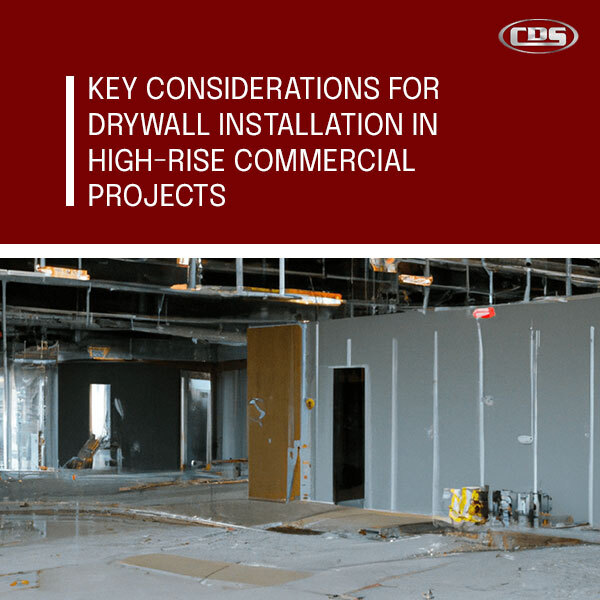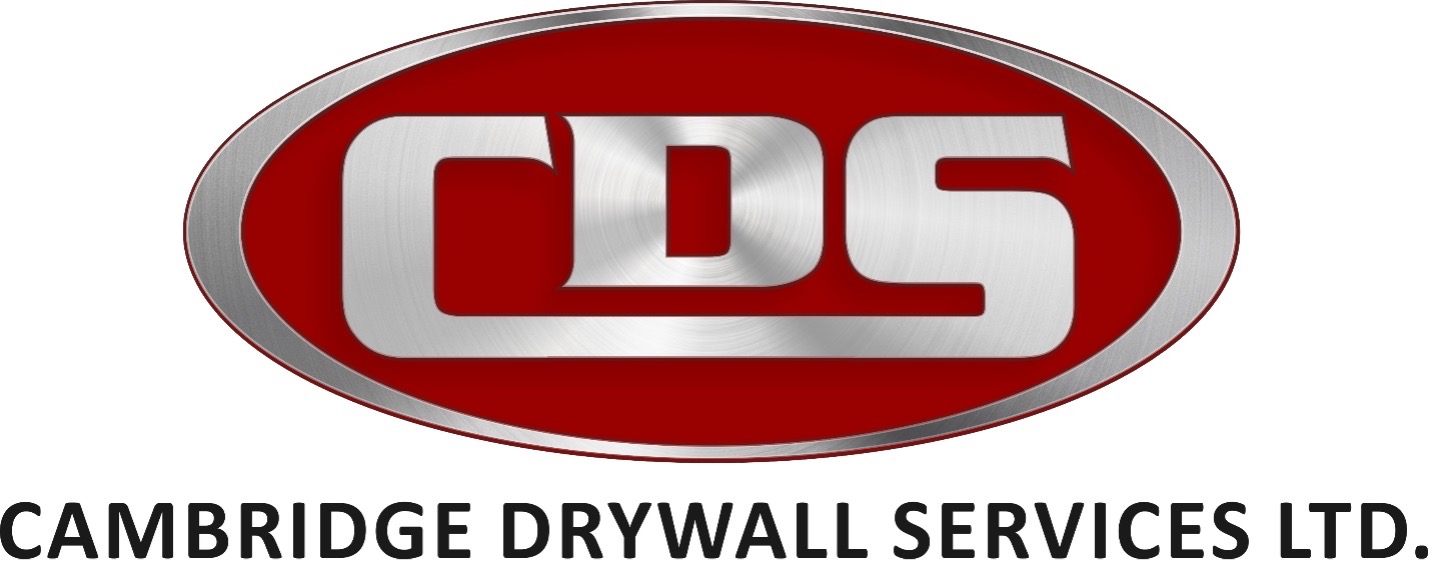
Key Considerations for Drywall Installation in High-Rise Commercial Projects
Drywall installation is a critical aspect of high-rise commercial construction. These large-scale projects require meticulous planning, high-quality materials, and precise execution to ensure safety, durability, and aesthetic appeal. In high-rise buildings, unique factors come into play, including structural challenges, fire safety requirements, and soundproofing considerations. This blog delves into the key aspects that need to be taken into account when installing drywall in high-rise commercial buildings.
1. Material Selection for Durability and Safety
One of the primary considerations for drywall installation in high-rise commercial projects is material selection. Due to the scale of the buildings and the specific regulations governing commercial spaces, standard drywall materials may not be sufficient. High-performance materials, such as Type X drywall, which is fire-resistant, are often required.
Additionally, in some high-rise buildings, moisture-resistant drywall or mold-resistant drywall might be essential, especially in areas prone to humidity or water exposure, such as restrooms and kitchens. Selecting the right type of drywall for each specific area ensures longevity and compliance with local building codes.
2. Fire Safety Regulations and Compliance
Fire safety is paramount in any commercial building, particularly in high-rise structures where evacuation during emergencies can be more complex. Building codes and fire safety regulations require the use of fire-rated drywall in certain areas, such as stairwells, corridors, and elevator shafts.
Type X or Type C drywall, which is reinforced with non-combustible materials, provides an additional layer of fire resistance. These drywall types are specifically designed to slow the spread of fire, giving occupants more time to evacuate and first responders more time to act.
Fireproofing isn’t just about the drywall sheets themselves; it also includes the installation of fire-rated insulation, sealants, and fire-resistant barriers between floors. Ensuring that the drywall system is compliant with fire safety codes can be the difference between life and death in an emergency.
3. Soundproofing for Tenant Comfort
In high-rise commercial projects, soundproofing is another critical factor, especially in mixed-use buildings where businesses and residents might share walls or floors. Acoustic drywall, designed to minimize noise transmission between rooms or floors, is an excellent option for these spaces.
Proper soundproofing enhances tenant comfort and privacy, which is essential in maintaining the building’s reputation and tenant satisfaction. For instance, installing soundproof drywall in conference rooms, executive offices, or common areas can significantly reduce distractions and improve productivity.
4. Structural Integrity and Load-Bearing Considerations
High-rise buildings are subject to a range of structural stresses, from wind loads to the natural sway of the building. Drywall installations must account for these factors to ensure long-term stability and durability.
It is essential to collaborate closely with engineers and architects to ensure the chosen drywall systems can handle the building’s unique structural demands. The thickness, framing, and support structures for the drywall should be designed to accommodate the specific stresses that come with high-rise construction.
5. Efficient Installation for Time and Cost Management
Given the scope and scale of high-rise commercial projects, time management is a crucial consideration. Drywall installation must be efficient, with minimal disruptions to other ongoing construction activities. Using pre-fabricated drywall panels or modular drywall systems can significantly speed up the installation process, helping to keep the project on schedule.
Cost management is equally important. Delays in drywall installation can lead to budget overruns and impact other parts of the construction project. Contractors should work with drywall specialists who have experience in large-scale commercial projects to ensure the installation process is streamlined without sacrificing quality.
6. Environmental Considerations: Energy Efficiency and Sustainability
Modern high-rise commercial buildings increasingly focus on energy efficiency and sustainability. The choice of drywall can contribute to the building’s overall environmental performance. Eco-friendly drywall options, such as those made from recycled materials, help reduce the building’s carbon footprint.
Additionally, some drywall systems are designed to enhance insulation, helping to reduce the energy needed for heating and cooling the building. By selecting the right drywall, contractors can contribute to the energy efficiency of the building, leading to long-term savings for the property owners and tenants.
7. Aesthetic and Design Flexibility
Drywall is not just a functional element of construction; it also plays a significant role in the overall aesthetics of a commercial space. In high-rise buildings, the drywall finish must meet the high expectations of tenants and owners alike. Smooth, seamless finishes are often required for offices, lobbies, and commercial areas where appearances are critical.
Beyond the finish, drywall offers flexibility in design. Curved walls, recessed lighting fixtures, and custom architectural features can be achieved using drywall, adding to the aesthetic appeal of the commercial space. Proper drywall installation allows for the creative expression of the building’s design without compromising structural integrity.
8. Compliance with Building Codes and Standards
High-rise commercial projects must comply with a range of local, national, and sometimes international building codes. These regulations cover everything from fire resistance to insulation and soundproofing. Ensuring compliance with these standards is non-negotiable in commercial projects, as it directly impacts the safety, functionality, and legal standing of the building.
Working with an experienced drywall contractor familiar with commercial building codes is essential to guarantee that the project meets all regulatory requirements. This not only ensures safety but also prevents costly fines or the need for post-construction modifications.
9. Working with the Right Drywall Contractor
Choosing a drywall contractor experienced in high-rise commercial projects is key to ensuring success. At Cambridge Drywall, we specialize in providing drywall solutions tailored to the unique challenges of large-scale commercial construction. From material selection to fire safety and soundproofing, our team is equipped to handle every aspect of the drywall installation process efficiently and professionally.
Contact Cambridge Drywall for Your High-Rise Commercial Project
If you’re planning a high-rise commercial project, trust the experts at Cambridge Drywall to deliver high-quality, durable, and compliant drywall installations. Our experience and commitment to excellence ensure that your project will meet all safety, regulatory, and aesthetic standards.
Contact Us Today:
Phone: 519.624.1575
Email: info@cambridgedrywall.com
Visit our website: cambridgedrywall.com/contact
Let’s discuss how we can help you achieve a flawless drywall installation for your next high-rise commercial project!
